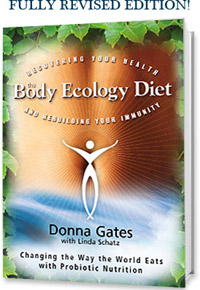Is Bone Health a Missing Key to Your Health?
What are bones?
They are what make up the skeletal system. They give the body structure. They facilitate movement. They even produce blood cells. In the past five years, researchers have discovered that bones play a far larger role in overall health than previously thought.
In 2007, Columbia University College of Physicians and Surgeons revealed the outcome of recent studies and announced that bone actually influences energy production and regulation, as well as the storage of fat. This means that bone cells affect and interact with the endocrine system.
Bone, like the fascial web between muscles, tendons, and cartilage, is connective tissue.
Even though bone seems relatively inert compared to another connective tissue such as blood, which is constantly moving through the vessels, it is actually dynamic and constantly changing. Two cells are primarily responsible for bone formation and bone resorption.
- Osteoblasts: create bone
- Osteoclasts: destroy bone
The harmonic flow between these two cells is responsible for the constant remodeling and strengthening of the skeletal system. The influence of bone cells extends beyond the skeletal system. The prevalence of one system interacting with and affecting one or several others is a dominant theme discussed through Body Ecology principles and put into practice with the Body Ecology Diet.
Osteoblastic cells secrete what is known as osteocalcin.
Osteocalcin acts like a hormone in the body and is chiefly known for its involvement in bone mineralization and construction.
- Osteocalcin has also been found to induce pancreatic beta cells to release more insulin, while also increasing insulin sensitivity in adipose tissue, or fat cells.
- Adipocytes, through a biochemical pathway involving osteocalcin, actually secrete a substance called adiponectin, which is an insulin-sensitizing protein, as well as an anti-inflammatory agent.
- Because osteocalcin leads to the proliferation of pancreatic beta cells, insulin and blood sugar levels stabilize, while both appetite and weight have a greater opportunity to normalize.
By the same token, if the osteocalcin is at low levels in the body, there will be an increase in osteoclastic activity.
This means that bone will break down and demineralize, which implies an increased risk of osteoporotic fracture due to decreased bone density. Bone cells secrete substances like adiponectin that go into circulation throughout the body. If osteocalcin is deficient, the biochemical pathway that uses osteocalcin is not as active. This suggests a greater likelihood that systemic issues will develop, such as inflammation.
2011 saw even more research into the role that osteocalcin plays in the body.
Using lab mice, Gerard Karsenty, a geneticist at Columbia University, observed that male mice whose skeletons did not secrete high levels of osteocalcin were poor breeders, producing half as many litters as the male mice with sufficient levels of osteocalcin. These osteocalcin deficient mice also produced fewer pups per litter.

Osteocalcin is a hormone that is responsible for building healthy bone mass, and it also regulates testosterone levels to improve fertility in men!
Osteocalcin promotes the production of testosterone.
And only testosterone. This was surprising to researchers because they were expecting to find a connection between estrogen and bone-producing cells. In women, once menopause arrives and estrogen levels drop, bone mass density typically declines as well. Researchers were expecting to see a correlation between low levels of osteocalcin with a decline in estrogen.
Karsenty tells us that, “We were betting at the beginning that it would regulate female fertility more than male fertility.” However, in mouse-cell cultures, researchers found that osteocalcin secreted by osteoblasts influenced testosterone by acting on Leydig cells. Leydig cells synthesize testosterone in the testes.
In a following series of experiments with live mice, Karsenty found that those mice that were engineered to have low levels of osteocalcin also presented low levels of testosterone and were less fertile than mice that had levels of osteocalcin within normal range.
Karsenty and his colleagues suggest that osteocalcin secreted from osteoblast cells is a hormone that plays many roles in the body, beyond building bone mass. Karsenty tells us that, “It doesn’t make mice live longer, but it makes them live better.”
Testosterone is most well known for its ability to assist in building muscle mass and increasing fertility.
As most men age, levels of free testosterone drop dramatically.
- Low levels of testosterone in men can affect mood. Research shows that testosterone may be involved in the uptake and storage of dopamine.
- A decline in testosterone has been linked to neurodegenerative conditions, such as Alzheimer’s disease, and is actually neuroprotective.
- Testosterone has a profound relationship with the skeletal system and could be an indicator of unhealthy bones or an osteoporotic condition.
The most recent studies have found that the skeletal system is a significant endocrine modulator, affecting a full spectrum of endocrine-associated functions, such as insulin levels and insulin sensitivity, obesity, appetite, and fertility.
In Traditional Chinese Medicine, testosterone production and brain health is an aspect of what is known as jing, or one’s vital essence.
The kidney meridian has a fundamental association with this jing-essence, which, according to Chinese medicine theory, is stored in the bones. That’s right; the bone and testosterone relationship is not so much of a stretch for Traditional Chinese medicine practitioners. Consuming organic and grass-fed or free-range bone broth, rich in marrow, is a popular traditional therapy to strengthen one’s jing, or vital essence, and improve bone integrity.
Also, there are various Chinese botanicals that are highly revered for their ability to combat aging, boost testosterone, and enhance longevity. Interestingly, some of these testosterone-boosting botanicals even address erratic levels of blood sugar and insulin resistance. When investigating levels of testosterone in the body, western and Chinese physicians can now dig a little bit deeper – all the way down to the bones – and consider osteocalcin.
WHAT TO REMEMBER MOST ABOUT THIS ARTICLE:
Bones are connective tissue, like muscles, tendons, and cartilage. Osteocalcin is a hormone in the body that is responsible for bone mineralization and construction. If osteocalcin levels are low, bones will quickly break down and demineralize to increase the risk of osteoporosis.
On top of that, osteocalcin is responsible for the production of testosterone. Beyond simply building bone mass, osteocalcin stabilizes testosterone levels to build lean muscle mass, increase fertility, and even regulate mood in men. If a man is struggling with a testosterone imbalance, the cause may lie much deeper and stem from low levels of osteocalcin in the bones.
PRODUCT RECOMMENDATIONS:
REFERENCES:
- O’Callaghan, Tiffany. Of femurs and fertility. Nature Journal. 17 February 2011.
- Oury, Grzegorz Sumara, Olga Sumara, Mathieu Ferron, Haixin Chang, Charles E. Smith, Louis Hermo, Susan Suarez, Bryan L. Roth, Patricia Ducy, Gerard Karsenty.?Endocrine Regulation of Male Fertility by the Skeleton. Cell – 4 March 2011 (Vol. 144, Issue 5, pp. 796-809).









